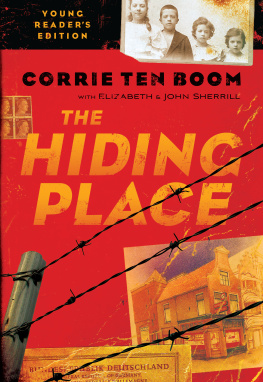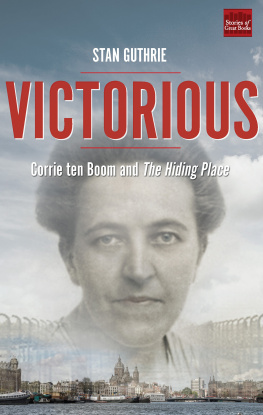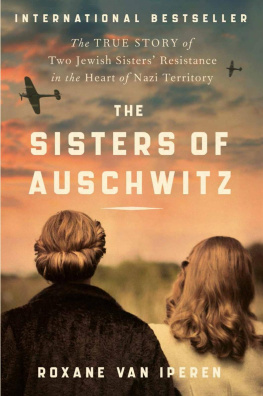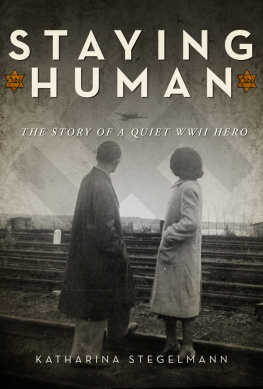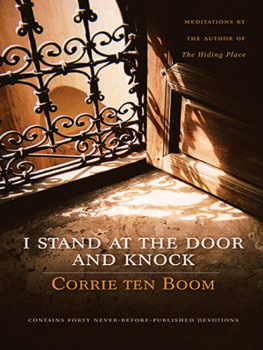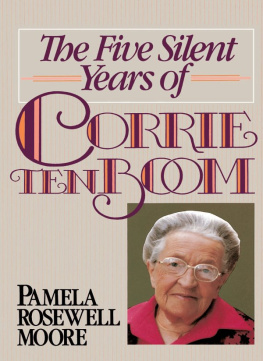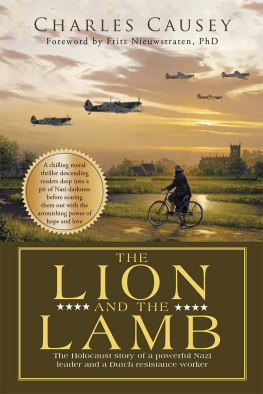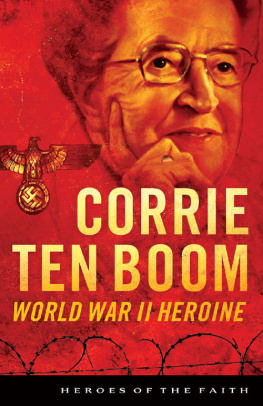1. The One Hundredth Birthday Party
2. Full Table
3. Karel
4. The Watch Shop
5. Invasion
6. The Secret Room
7. Eusie
8. Storm Clouds Gather
9. The Raid
10. Scheveningen
11. The Lieutenant
12. Vught
13. Ravensbruck
14. The Blue Sweater
15. The Three Visions
1
The One Hundredth Birthday Party

I jumped out of bed that morning with one question in my mindsun or fog? Usually it was fog in January in Holland. I leaned as far as I could from the single window in my bedroom in our building, called the Beje ( bay - yeah ); it was always hard to see the sky from there. Brick walls looked back at me in this crowded center of Haarlem. But I could see a patch of pale sky.
Fathers bedroom was directly under mine, but at 77 he slept soundly. You are not growing younger yourself , I reminded my reflection in the mirror. I was 45 years old and unmarried. My sister Betsie, seven years older than I and also unmarried, still had that slender grace that made people turn and look after her in the street. Heaven knows it was not her clothes; our little watch shop had never made much money.
Below me down on the street, the doorbell rang. I opened my door and plunged down the steep twisting stairway. Actually, the Beje was two houses. The one in front was a typical old-Haarlem structure, three stories high, two rooms deep, and only one room wide. At some point its rear wall had been knocked through to join it with the even thinner, steeper house in back of itwhich had only three rooms, one on top of the otherand this narrow corkscrew staircase squeezed between the two.
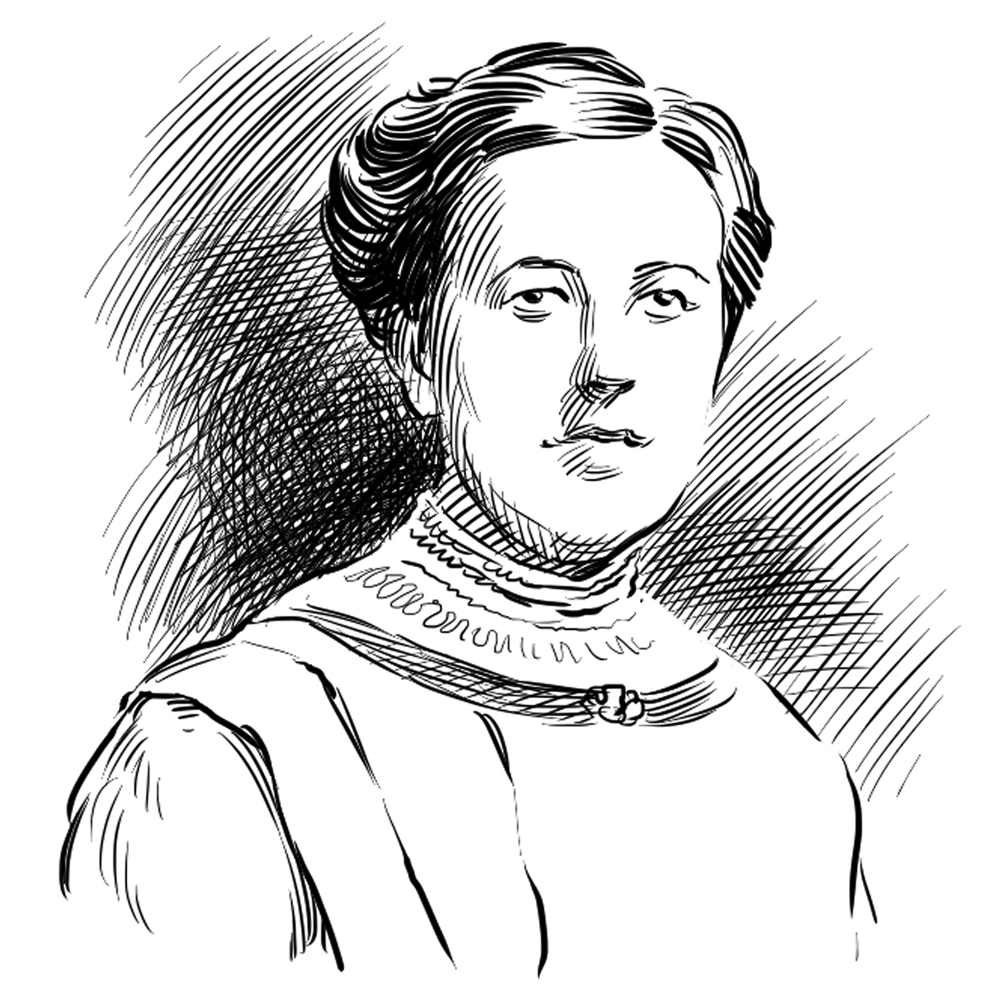
Betsie was at the door ahead of me. An enormous spray of flowers filled the doorway. We searched the bouquet for the card. Pickwick! we shouted together.
Pickwick was a wealthy customer who not only bought the very finest watches but often came upstairs to the family part of the house above the shop. His real name was Herman Sluring; Pickwick was the name Betsie and I used between ourselves because he looked like the illustrators drawing in our copy of Dickens. Herman Sluring was short, bald, and immensely fat, and his eyes were such that you were never quite sure whether he was looking at you or someone else. He was as kind as he was fearsome to look at.
The flowers had come to the side door, the door the family used, opening onto a tiny alleyway, and Betsie and I carried them into the shop. First was the workroom, where watches and clocks were repaired. There was the high bench over which Father had bent for so many years, doing the delicate, painstaking work that was known as the finest in Holland. In the center of the room was my bench, next to mine Hans the apprentices, and against the wall old Christoffels.
Beyond the workroom was the customers part of the shop, with its glass case full of watches. All the wall clocks were striking 7:00 as Betsie and I carried the flowers in. Ever since childhood, I had loved to step into this room where a hundred ticking voices welcomed me. I unlocked the street door and stepped out into the Barteljorisstraat. The other shops up and down the narrow street were still shuttered: the opticians next door, the dress shop, the bakers, Weils Furriers across the street.
I folded back our shutters and admired the window display. It held a collection of clocks and pocketwatches all at least a hundred years old, all borrowed for the occasion. For today was the shops one hundredth birthday. In January 1837, Fathers father had placed in this window a sign:
Ten Boom
Watches
The doorbell on the alley rang again; more flowers. So it went for an hour, large bouquets and small ones, elaborate pieces and home-grown plants in clay pots. For although the party was for the shop, the affection was for Father. Haarlems Grand Old Man they called him.
When the shop and the workroom would not hold another bouquet, Betsie and I carried them upstairs to the two rooms above the shop. Though it was twenty years since her death, these were still Tante Jans rooms. Tante Jans was Mothers older sister, and her presence lingered in the massive dark furniture she had left behind.
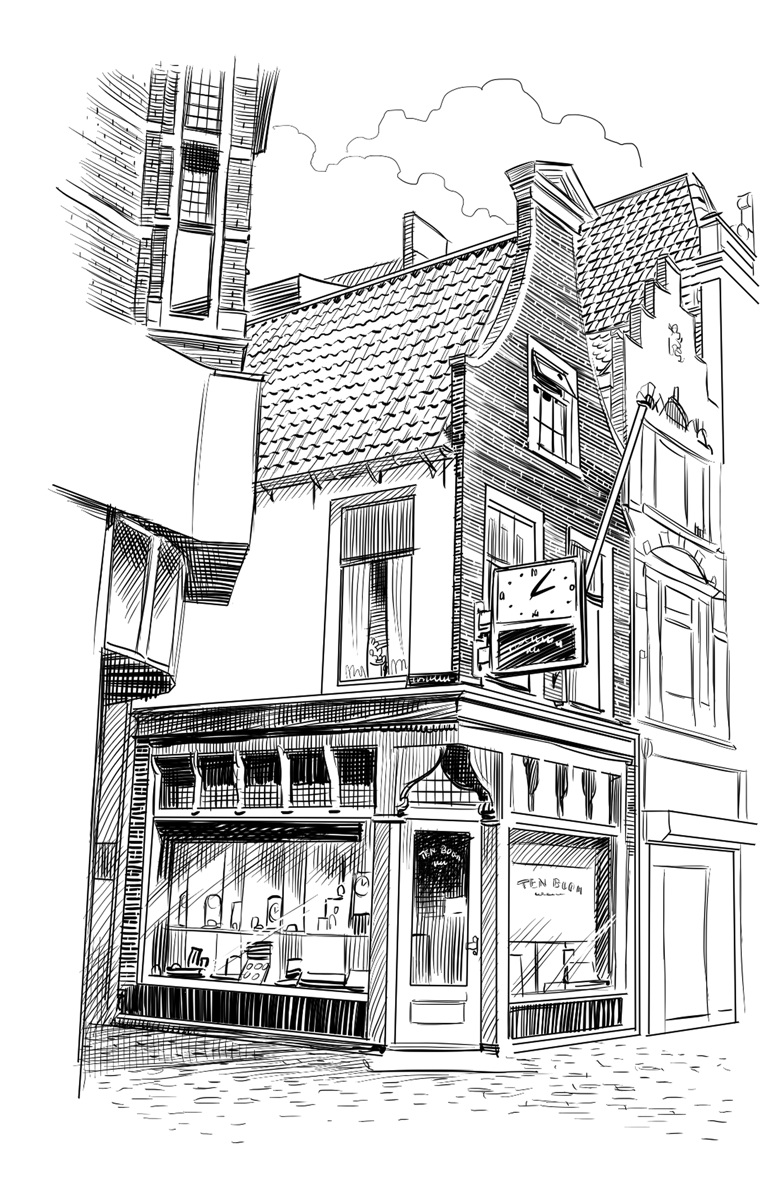
At 7:45 Hans, the apprentice, arrived, and at 8:00 Toos, our saleslady-bookkeeper. Toos was a sour-faced individual whose unpleasant personality had made it impossible for her to keep a job untilten years agoshe had come to work for Father. Fathers gentle courtesy had mellowed her, and though she would never have admitted it, she loved him as fiercely as she disliked the rest of the world. We left Hans and Toos to answer the doorbell and went upstairs to get breakfast.
I set out three plates. The dining room was in the house at the rear, five steps higher than the shop but lower than Tante Jans rooms. This room with its single window looking into the alley was the heart of the home. We used only a corner of the table now, Father, Betsie, and I, but to me the rest of the family was still there. There was Mamas chair, and the three aunts chairs (not only Tante Jans but Mamas other two sisters had also lived with us). Next to me had sat my other sister, Nollie, and Willem, the only boy.
Nollie and Willem had homes of their own now, and Mama and the aunts were dead, but still I seemed to see them here. Their chairs had not stayed empty long. Father could never bear a house without children, and whenever he heard of a child in need of a home a new face appeared at the table. Out of his watch shop that never made much money, he fed and cared for eleven more children after his own four were grown. Now these, too, had grown up and married or gone off to work, and so I laid three plates on the table.

